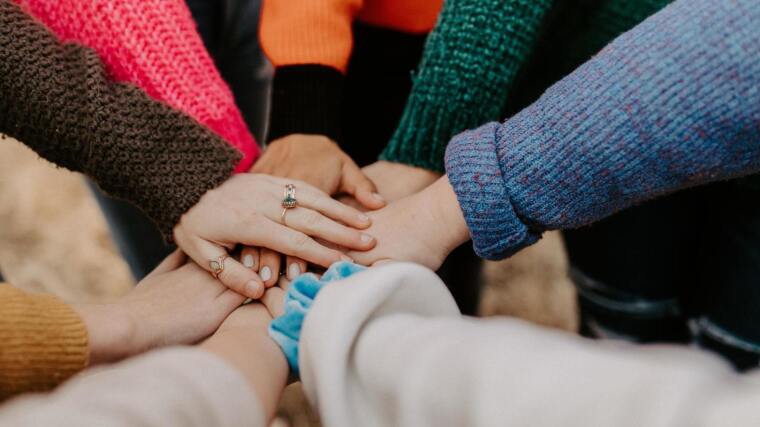
The topic of societal integration has been one of the key subjects of KomRex since the expansion of the research institute at Friedrich Schiller University Jena in 2017.
Strengthening discourses and political approaches to the integration of migrants and refugees through scientific findings is a main task of this working area.
Our tasks in the area of social integration include:
- Conducting relevant research and evaluations
- Transferring scientific findings to politics, practice and civil society with regard to potentials, prerequisites and obstacles in the field of social integration
Part of our transfer work is to offer advice and scientific expertise in the field of societal integration and on integration potentials, prerequisites and obstacles. Do you have any questions on these topics? Please do not hesitate to contact us. de
Books
Image: Creative CommonsThüringen-Monitor-Integration
In this context, the KomRex analyzed aspects and courses of acculturation processes from a social science and psychological perspective in the Thüringen-Monitor-Integrationpdf, 8 mb · de. The focus here was on recording the integration potentials, prerequisites and obstacles of refugees of different origins who have only been living in Thuringia for a short time. These findings will be used to derive suitable measures to promote the integration of refugees and to develop political recommendations for action.
be developed.
In a broader understanding of societal integration, scientists involved in the KomRex are also working on the reconciliation of conflicting groups in the field of religious studies and on the initiative Global understandingExternal link in geography. In psychology, members are currently researching factors for the active participation of young people in Europe. In communication studies, the image of migrants in the media has been an important field of research for years.
Publications on societal integration:
- Kleinschmitt, A. (2024). Research on psychotherapy for refugees in Germany: A systematic review on its transdisciplinary and transregional opening. Transcultural Psychiatry. Online first. https://doi.org/10.1177/13634615231187255 External link
- Beelmann, A., Noack, P., Dingfelder, J., Schmidtke, F., Lutterbach, S. & Schulz, A. (2019). Thüringen-Monitor Integration. Lebenslagen, EInstellungen und Perspektiven von Geflüchteten. KomRex, Friedrich-Schiller-Universität Jena. Downloadpdf, 8 mb · de
- Best, H. (2019). Zwischen Individualisierung und Zusammenhalt - Ein Blick auf die Gesellschaftsentwicklung Ostdeutschlands. Vortrag im Thomasforum am 13. März 2019. Download
- Beelmann, A.; Dingfelder, J., Lutterbach, S., Noack, P., Schmidtke, F. & Schulz, A. (2018). Integration erfolgreich gestalten. Einstellungen und Orientierungen syrischer Flüchtlinge in Thüringen. KomRex, Friedrich-Schiller-Universität Jena. Downloadpdf, 3 mb · de
- Salheiser, A. (2018). Zusammenhalt, Gerechtigkeitswahrnehmung und die Akzeptanz von Minderheiten in Thüringen. In Wissen schafft Demokratie. Schriftenreihe des Instituts für Demokratie und Zivilgesellschaft (IDZ), Jena, 3. Band, Juli 2018, S. 28–36. https://doi.org/10.19222/201803/03 External link
- Albrecht, Y. (2017). Gefühle im Prozess der Migration: Transkulturelle Narrationen zwischen Zugehörigkeit und Distanzierung. Springer Fachmedien. https://doi.org/10.1007/978-3-658-17039-4External link
- Best, H., Niehoff, S., Vogel, L. & Salheiser, A. (2017). Politische Kultur im Freistaat Thüringen. Thüringens ambivalente Mitte: Soziale Lagen und politische Einstellungen: Ergebnisse des Thüringen-Monitors 2017. KomRex, Friedrich-Schiller-Universität Jena. Downloadpdf, 18 mb · de
- Salheiser, A. (2017). Weltoffen oder fremdenfeindlich? Die Einstellungen der Thüringer Bevölkerung gegenüber Asyl, Migration und Minderheiten. In Wissen schafft Demokratie. Schriftenreihe des Instituts für Demokratie und Zivilgesellschaft (IDZ), Jena, 1. Band, April 2017, S. 60–71. https://doi.org/10.19222/201701/6External link
